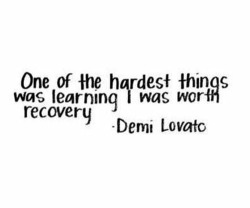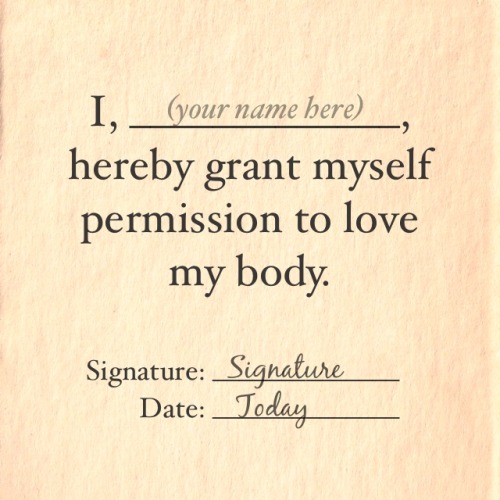A little bit about Minnie Maud
 For those who may not know, Minnie Maud is a get of guidelines created by patient advocate Gwyneth Olwyn and explained on her blog YourEatopia. I strongly encourage you guys to go through it and read through the literature on your own because it explains in detail (and gives citations for the science behind) the guideline procedures. In a nutshell, MM guidelines encourage a recovering person to eat a minimum of 3,000 calories a day (some 2,500 and some 3,500 but for most and for me it was 3,000) and stay completely sedentary as a way to reverse metabolic damage, heal broken body systems, and confront the mental restrictive behaviors. On MM there is no "good" or "bad" foods, no macronutrients to hit, and no maximum caloric guideline, only a minimum. In fact, YourEatopia cites that many people in recovery will experience periods of extreme hunger and eat several times the minimum in their body's effort to obtain energy for recovery. This intake is completely normal and the hunger is encouraged to be honored.
For those who may not know, Minnie Maud is a get of guidelines created by patient advocate Gwyneth Olwyn and explained on her blog YourEatopia. I strongly encourage you guys to go through it and read through the literature on your own because it explains in detail (and gives citations for the science behind) the guideline procedures. In a nutshell, MM guidelines encourage a recovering person to eat a minimum of 3,000 calories a day (some 2,500 and some 3,500 but for most and for me it was 3,000) and stay completely sedentary as a way to reverse metabolic damage, heal broken body systems, and confront the mental restrictive behaviors. On MM there is no "good" or "bad" foods, no macronutrients to hit, and no maximum caloric guideline, only a minimum. In fact, YourEatopia cites that many people in recovery will experience periods of extreme hunger and eat several times the minimum in their body's effort to obtain energy for recovery. This intake is completely normal and the hunger is encouraged to be honored.
Why I decided to recover and follow MM
I have battled severe anorexia for most of my teenage life - from my second year of high school through my first year of university - and for all but the last six months of that period I was in a state of strict caloric restriction. Medically, I was a walking miracle. My doctors expected my heart to stop beating at any moment. Anorexia not only completely destroyed my body but exacerbated my depression, made me isolated, cold, destroyed all family relationships, and was tearing my family apart. The scary thing is though, for the longest time the fear of weight gain was just so much greater than the fear of death, loneliness, and depression. Bread was scarier than not being able to have children. Now looking back at this period of my life, I can't be more grateful that I was given a chance to survive this nightmare and essentially a second chance at life.
At the very beginning of my recovery (around the middle/end of my first semester at university) I was still too scared to gain weight, but I also did not want to be sick anymore. I wanted to be "thin and beautiful" but I also wanted to be happy and carefree. And so I "upped my calories" to a measly 400 a day. Maximum. And yes, I did gain weight. In about a 6-7 month period I gained about 10-15 pounds eating no more than 400 calories a day. That's how destroyed my metabolism was. I was still cold at the time, depressed, losing hair, and generally hating myself.
During my quasi-recovery period, I found the recovery community on Instagram and particularly Julia. She was following MM and seemed to be doing so great. The thing is, MM guidelines seemed to almost perfectly match what my therapist had tried to have me do years ago, but of course I completely disregarded it at the time. This time, a light bulb went off and I was just so desperate for a way out of this nightmare so I absolutely devoured YourEatopia. I read every single article, did my own research, wrote out meal plan after meal plan, and yet...I was still too scared to take the plunge. I still didn't believe that I was strong enough to recover.
It wasn't until June of 2014 when I truly decided to recover on my own. What triggered me? I really can't tell you. I was just so tired and battered after years of number counting and self loath. I was terrified of maintaing my weight on 400 calories for the rest of my life, and I wanted normalcy back. I remember reading some of Amalie's words on her tumblr:
If a recovered life really sucks, you can always go back to your eating disorder. But give it a try. Not a month, but a real try. You are in power, and you save yourself.So I gave it a go. And it really was the best decision I ever made.
My recovery process
Starting from June 2014 I just ate. I ate. And I ate. I had at least 3000 calories a day, usually more. And if you're expecting me to tell you that things got easier then you're dead wrong. Eating is hard and it only gets harder. During my eating disorder, not only did I restrict, but I also had very set rules and rituals around my eating. There were specific times, specific utensils, specific foods, and so forth, so during the first few days of recovery, when all of those foods and caloric restrictions went out the window, I did feel a big wave of relief, but then the roadblocks hit. I saw myself ballooning up, getting "obese", feeling guilty, and every single anorexic voice in my head was shouting at me about how much of a fat failure I was, how much I was losing control. On days when extreme hunger hit, where no matter how much I ate, I would only feel more hungry and proceed to eat more, I truly felt so out of control.
On the physical side, I went through severe bloating, swelling, fatigue, and lethargy and trust me, all of those symptoms are completely normal during recovery. 3000 calories is a lot of food and for a recovering anorexic, the sheer volume is just as difficult physically as mentally. In the beginning very foods felt "safe" for me to eat. In fact, my diet pretty much consisted of lettuce, fibrous vegetables, and protein bars. I was as much rattled by orthorexia as anorexia, so the thought of eating "unhealthy" , "dirty", processed food was another mental hurdle I had to work around. Initially, despite eating 3000 calories, I only stuck to "healthy", safe foods: oatmeal and peanut butter, but that sort of behavior is just as disordered as restricting. So I had to force myself to eat everything I fear enough times until they no longer fazed me. Trust me, it's a long and difficult process.
My digestive system was destroyed so I could barely process food, leading to the bloating, my cells were desperately trying to use the extra energy to repair, which led to the swelling and inflammation. My body stopped being in a false state of hyper-alertness and began to signal the years of damage. In the beginning most of my excess weight gain accumulated on my midsection and thighs (the most horrific part for most anorexics) and I looked like a pillow two two string arms and a bony back. This is also completely normal during recovery as your body is simply trying to store as much fat back in the most readily accessible areas because it is afraid that you will starve it again. The more you eat, the more your body trusts you, the sooner this weight will redistribute.
Of course, my body image and self esteem hit an all time low. My mood changed twenty times a day, from complete elation at the thought of getting better to utter depression over my failure to keep myself in control. Recovery is hard and it only gets harder. In the first two months, I had mental breakdowns and panic attacks every single day. Trust me, this is all normal and it is so worth it. Looking back, my worst day in recovery was still a million times better than my best day restricting.
So when did recovery finally get easier? I really don't know. For me, during the early days in recovery, I would get bits of pieces of what my life was like before my eating disorder and the better I got, the longer those pieces would last. Eventually I really realized and more importantly lived how truly wonderful life is without an eating disorder.
I was given a second chance at life.
So what now?
I now consider myself 90% recovered. Mentally I am in such a good place, but I'm not going to lie, there are still certain foods that absolutely terrify me and I am still working on conquering. As for my body, I am at a very normal, healthy weight (higher than before my ED), my weight is redistributing, my hair is growing back in, and all my hormones and blood tests are returning to normal. I still don't menstruate and frankly, yes, this does suck. My biggest wish is to be able to have kids and knowing that right now it's not an option for me really is shattering.
But despite all that, I can't be happier right now. The trust, love, and support that the community has shown me still astonishes me. Really, from the bottom of my heart, thank you, guys!
If you are suffering right now, never ever hesitate to get help, to find a therapist, confide in a friend, or reach to to me. I promise you that there will be absolutely no judgement or shame. I have been there. I have done every single thing in the book and I survived. I know just how hard and scary recovery is, but I also know how worth it it is. At this point, you really only have two options:
- Continue restricting or being in quasi-recovery, deceiving yourself that you are completely okay or even getting better, stay in starvation mode for the rest of your life, have a terrible metabolism, be lonely, cold, depressed, anxious, worry about food, never have kids, travel, experience life, and die early or
- Choose recovery, cry, have panic attacks, being mentally and physically exhausted, but come out happier than ever with a great metabolism, have kids, get married, find a job you enjoy, live long, and genuinely love life again.
Additional resources:



